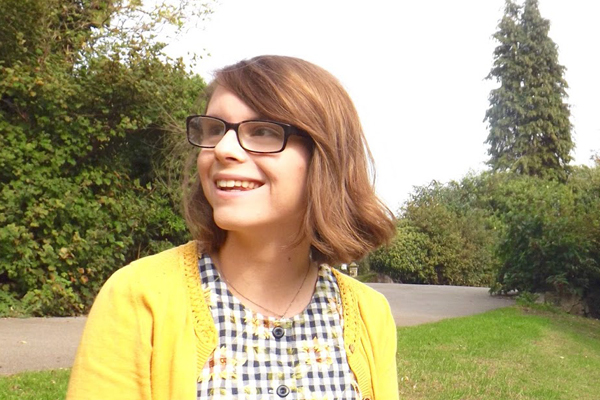Finding the positives
I have always thought that it is important to focus on the positives that you have in life, so when asked by Link Disability Magazine to write about this topic I was really happy to get involved! This is the first magazine article I have had the pleasure of writing so I hope you all like it!

Chloe Tear: Advice for health professionals. When you have cerebral palsy you cannot escape the fact that health professionals will be a part of your life. You will meet them in loads of different health departments, often seeing different people within one department. Also, with certain aspects of CP (like vision or speech impairments), you will be referred from one person to another. Trusting the health professional’s advice may be hard if this is a new experience for you, or if you feel they do not see the full picture – so here is my advice to health professions when having a patient with cerebral palsy.
Chloe Tear, Life as a Cerebral Palsy student April 6, 2017
When initially given a diagnosis for yourself or your child, it can be the fear of the unknown that is the scariest part. I was diagnosed with mild cerebral palsy (CP), affecting my legs and left arm, at the age of seven, and it would have been impossible to predict how things turned out. I understand that CP can be very unique to the individual; for me it has meant muscle weakness, muscles being too tight and lack of coordination and balance. Although my speech is unaffected, it has resulted in pain, seizures and a visual impairment, but here is why I think it is a positive.
When I was younger I often resorted to ‘blending in’ as it was the easier option when I didn’t fully understand what CP was. I have always attended a mainstream school and have found this to be a positive experience, especially when I got older. However, I slowly learned that ‘blending in’ is pointless and, at times, can just make the situation worse. When I was younger I didn’t see myself as different, often meaning I would get frustrated if I couldn’t keep up with peers. However, as I got older, the difference between my peers and I grew – they started going on night’s out, something that just wasn’t practical for me to do.
Now aged 18, I have achieved a lot. Some may argue this is because I have CP, and in some respects they are right. Cerebral palsy has allowed me to appreciate the small achievements. It has allowed me to be inspired by loads of young people and adults who are facing similar challenges as myself and through this I have created amazing friendships. A positive of living with cerebral palsy means I have learnt how to turn my obstacles into opportunities. It means I have had to work harder to make people see me, to stand out – but for all the right reasons.
Having cerebral palsy has allowed me to voice my opinion and create a change in people’s attitudes. How many people have an opportunity to educate others at the age of 18? Working in partnership with CP Teens UK and Scope, this has become a reality. If I believe something is not right, then I know something can be done about it.
When I set up the blog ‘Life as a Cerebral Palsy student’ I knew I wanted to raise awareness. Not only that, but I wanted to move away from the medical definition of cerebral palsy and make a collection of blog posts that were both truthful and relatable. I wanted someone who didn’t have cerebral palsy to gain more understanding, but allow people with CP to have someone to talk to.
I would rather stand out than blend in. Thank you cerebral palsy for helping me realise this.
